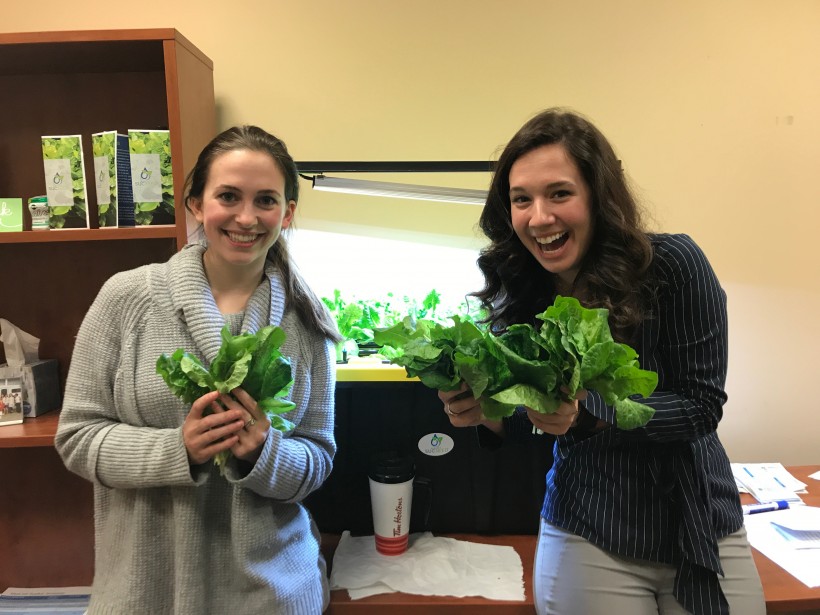SucSeed, a young company that makes hydroponic growing kits, is asking the public to help it win a chance to pitch for $100,000 in the upcoming Telus/Arlene Dickinson pitch competition.
St. John’s-based SucSeed has made the shortlist of 100 companies, and has recently cracked the top 20. It needs more public votes by this Wednesday, July 10, if it’s to make the final 10 and get to pitch in Toronto on July 30.
Why should the public vote for SucSeed? Because the young venture is proving itself a force for good and has a lot of potential. Its hydroponic systems allow users to grow fresh, affordable produce year-round, without soil or sun, for less than 30 cents per day.
Founder and CEO Emily Bland said winning the $100,000 would help bring to market SucSeed’s new and improved growing system, which can grow fresh produce 15 to 20 percent faster.
“It would also create an almost 100 percent waste-free process,” she said. “And make the system more robust in shipping and delivering, especially while being transported long distances to northern communities—we currently have about 180 systems across northern Canada.
“The money would allow us to scale quicker and reach more youth,” she added. “It would take about six months off our scalability track.”
SucSeed’s current focus is on educating youth about nutrition, sustainability and food waste. Its systems are made by homeless youth and are in schools across the country and in remote northern communities, where obtaining affordable and nutritious produce is particularly difficult. This issue motivated Bland to first launch the SucSeed Project while a student at Memorial University.
The system’s potential applications are diverse.
Bland sees it being used by aging populations to bring their back yards into their homes. Some systems have already been sold to corporations--one local company is using it to foster community around office-grown salad days.
With regard to climate change, Bland said it’s estimated the world will need up to 70 percent more food by 2050. She thinks hydroponic systems can empower everyone to be part of the solution.
“SucSeed is one part of the big puzzle of how we create a sustainable agricultural sector for everyone,” she said.
It’s a busy time for SucSeed, which is raising $700,000 in debt financing.
“We have a great team (of four), we are growing, we are having an impact at the classroom level and the social enterprise level,” Bland said.
The company has benefited from a lot of support, including from Genesis, the Newfoundland and Labrador Organization of Women Entrepreneurs and SheEO.
It has won a Startup Canada Social Enterprise Award and recently graduated from the Creative Destruction Lab-Atlantic, an experience Bland described as “transformational” to the success of the company.
Access to the CDL network of mentors and investors was huge, she said, as was the format, which requires participants to accomplish three things every eight weeks.
“It allowed us to move quicker than we thought we could,” she said, “We will keep that mentality.”
Bland said it’s exciting to get kids excited about kale and lettuce.
“They see it growing, that connection with the food, they see the work and time that goes into it…When you have fresh produce it’s so much better. It’s more nutritious because it’s straight off the vine and there’s no need for preservatives and pesticides.”
For Bland, who grew up on a family-owned egg farm in Grand Falls, NL, the work is personal.
“My parents and grandparents are some of the most hard-working people I’ve ever known,” she said. “They’ve been a huge support for me.”
As she pushes SucSeed forward, she is motivated by the memory of her big-hearted grandfather, Michael Bland, who did not live to see his granddaughter’s achievements.
“A big part of this is continuing his legacy,” she said.
Voting must be done by end of day July 10. Vote here










